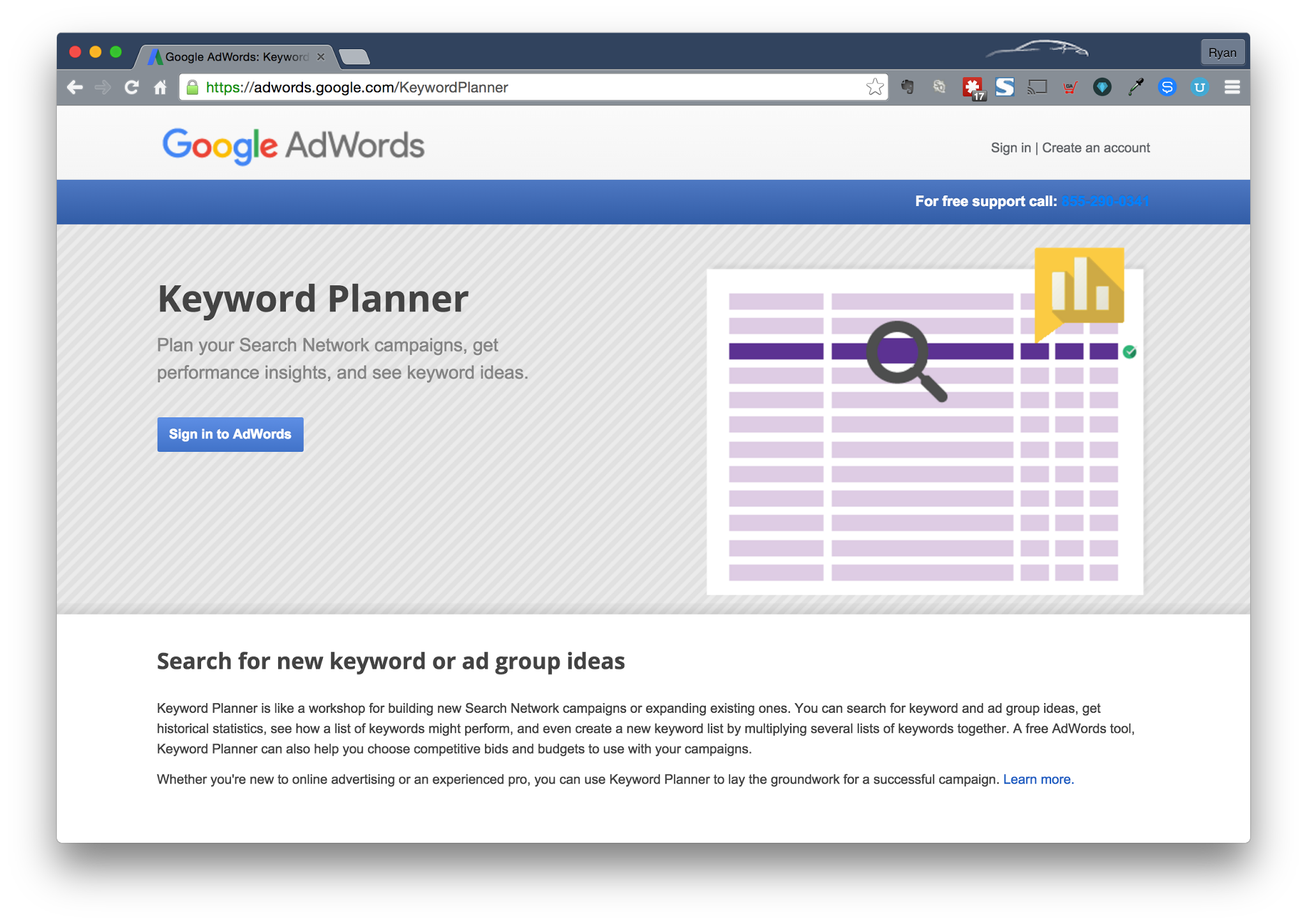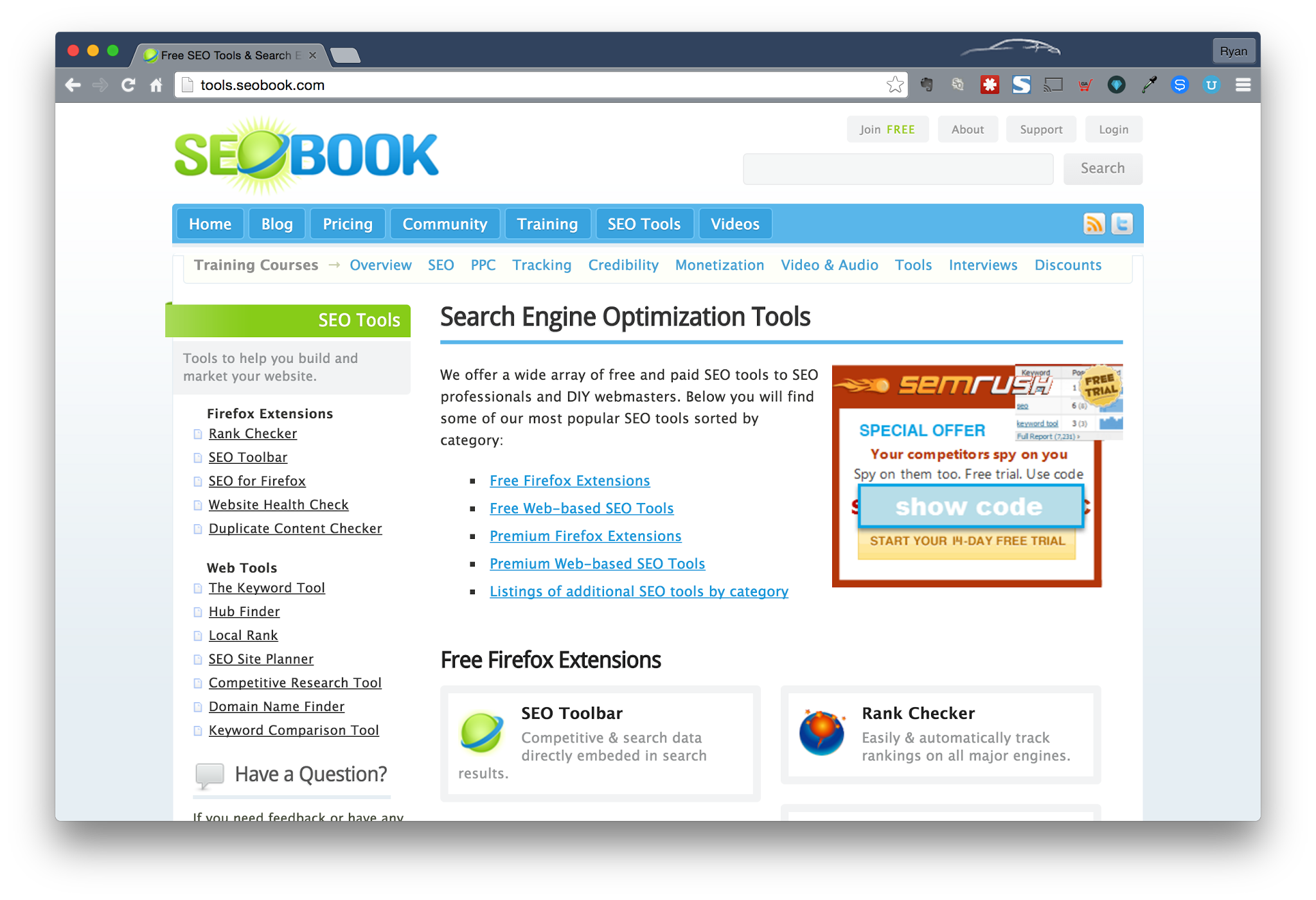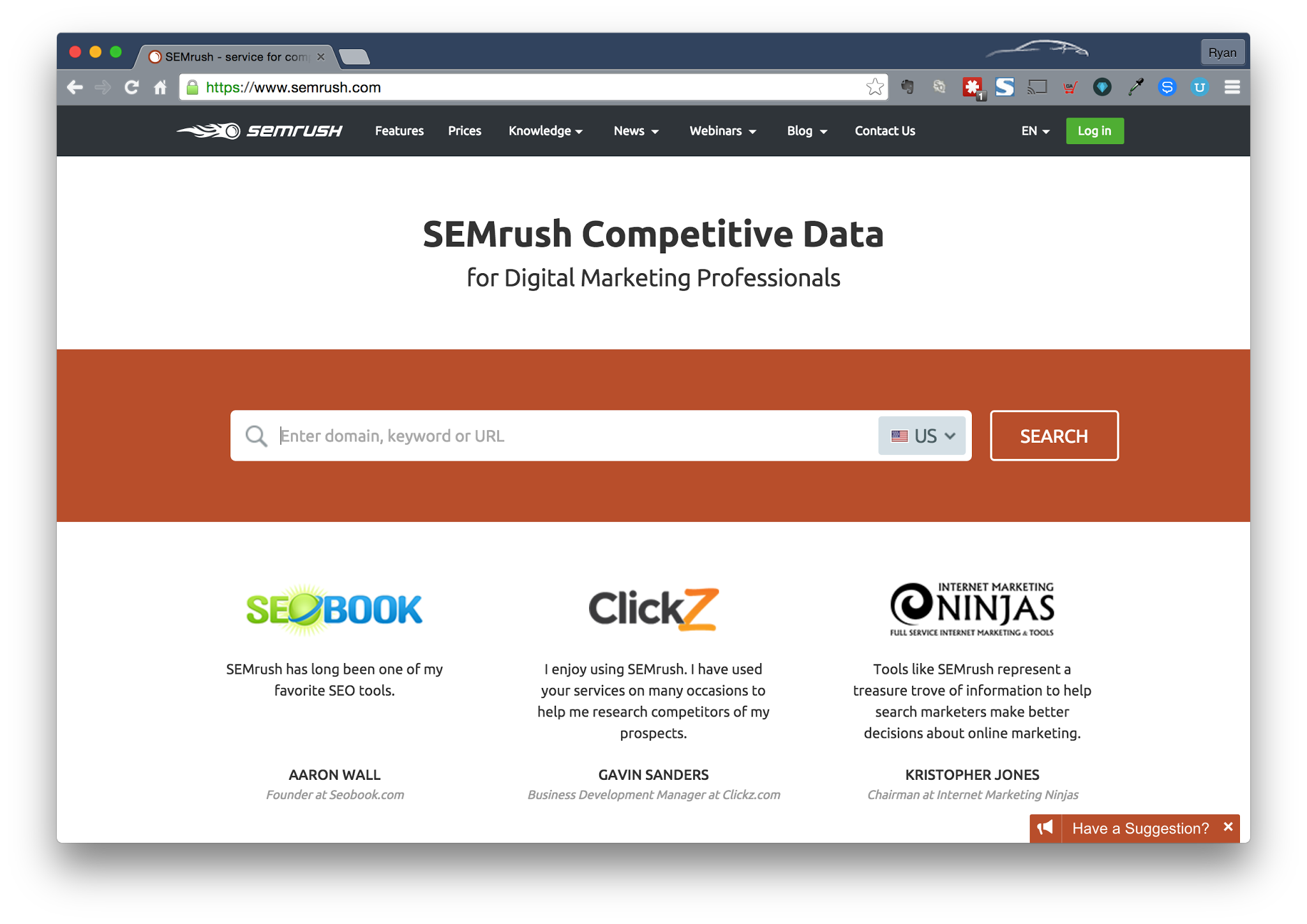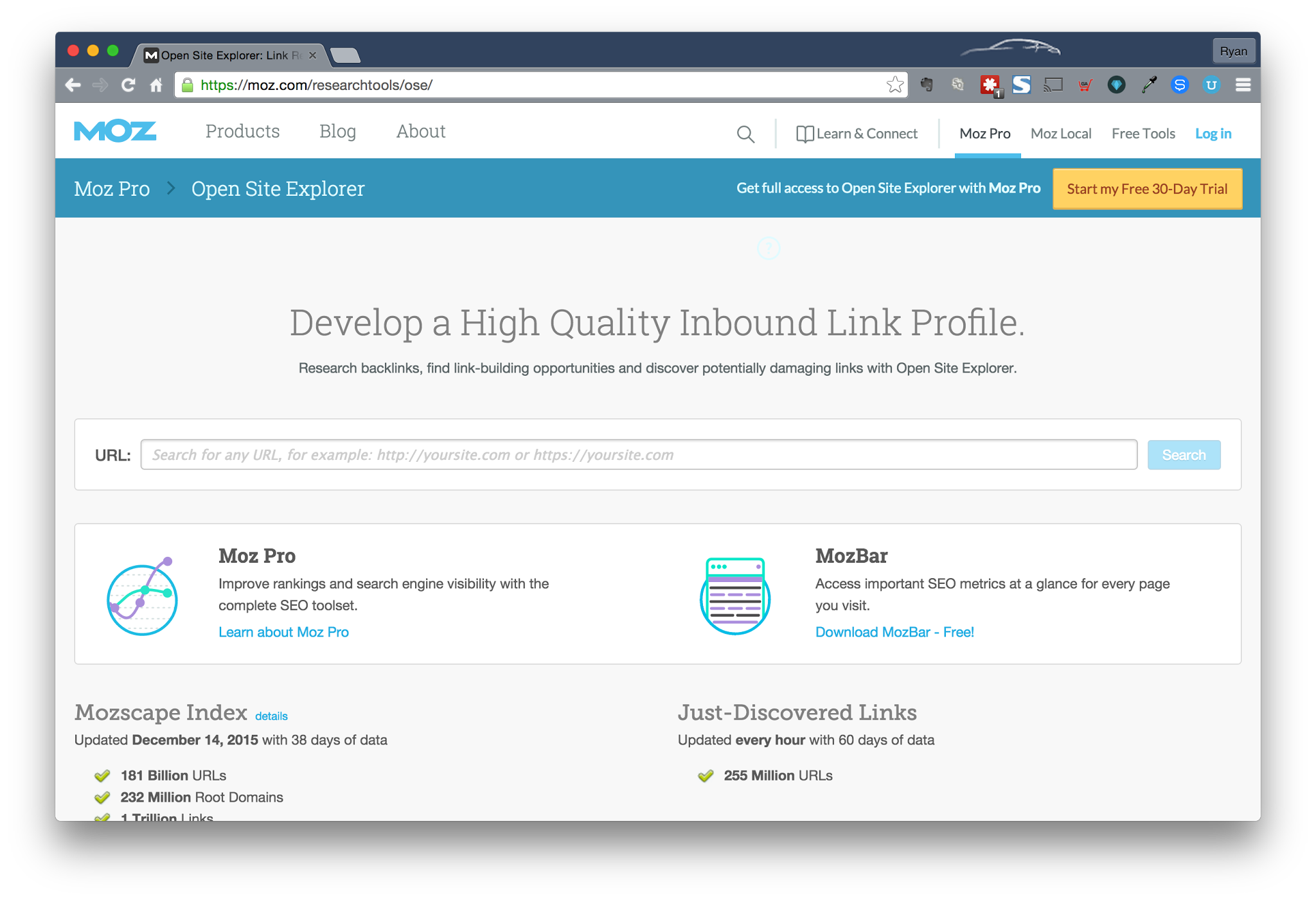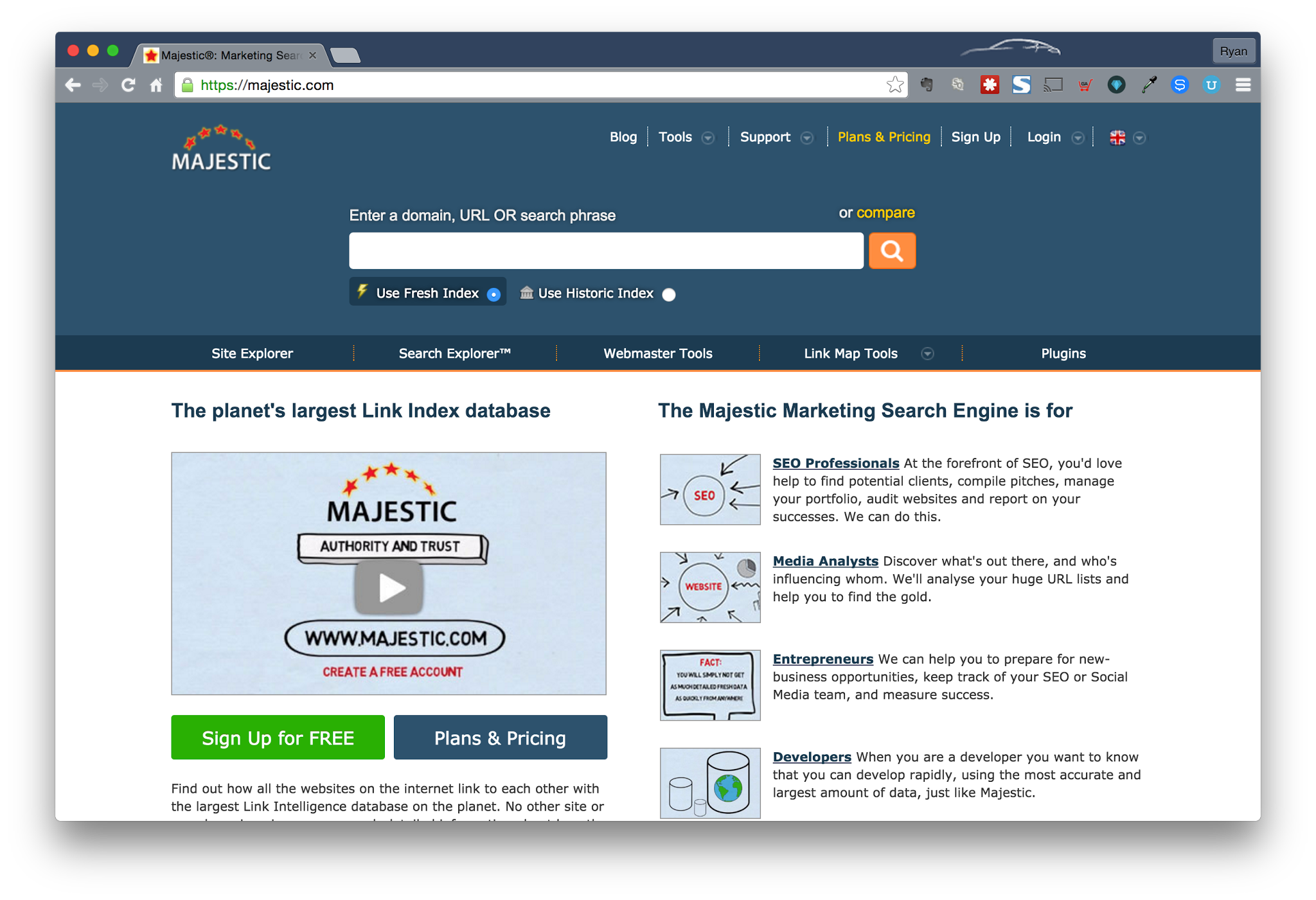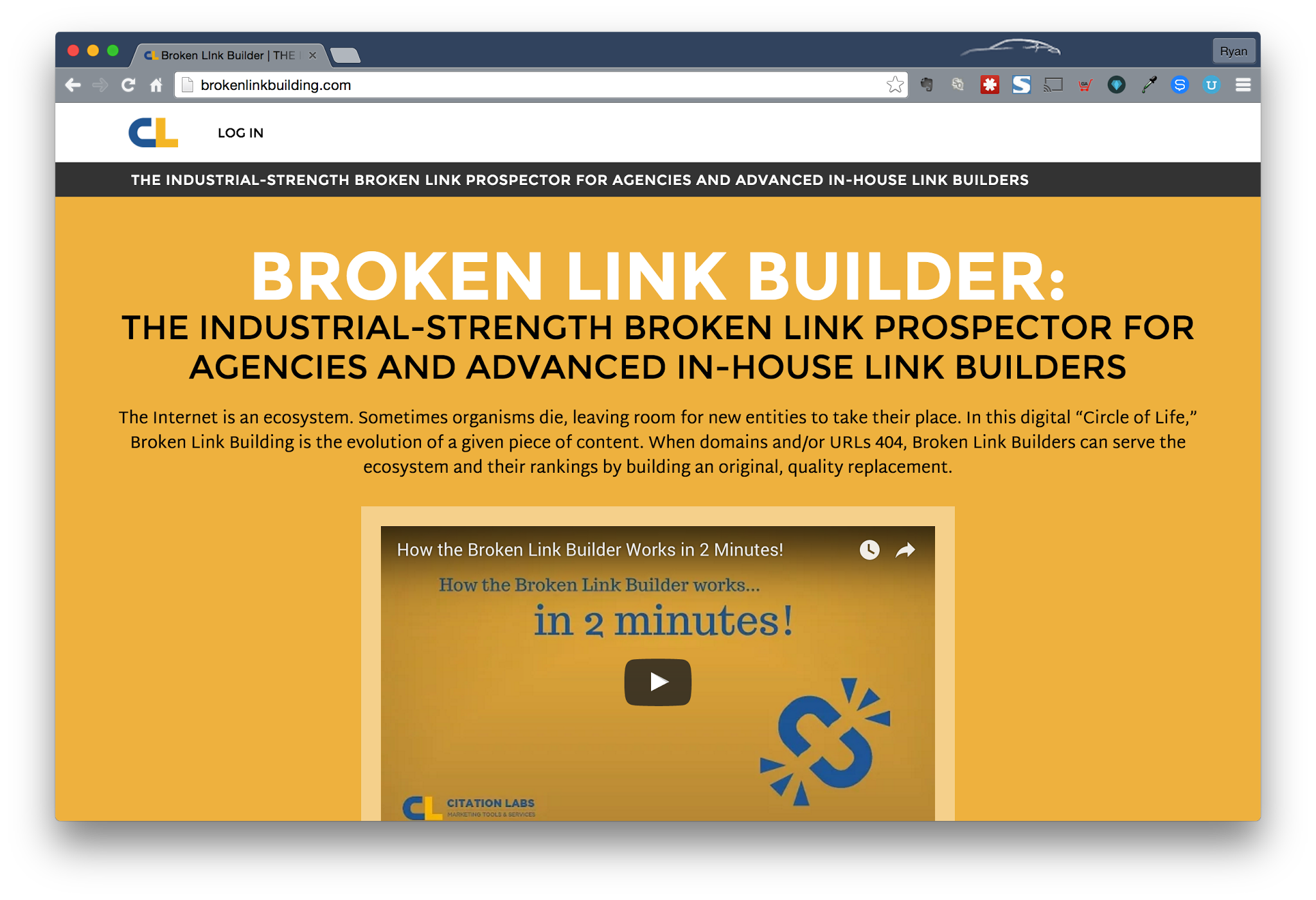Editor’s note: This post originally ran on Minnesota Public Relations Blog on Jan. 18, 2016.
Guest blog post by Ryan Berkness, Founder and CEO of PR Caffeine
Search engine optimization (SEO) has often received a bad rap in recent years, ever since the large original Google Panda and Google Penguin updates shut down many of the obvious ways to manipulate or spam search engine results. However, SEO is as important as it has ever been and the truth is that you can argue it’s even more important since there are no easy solutions. There is no spamming tags, no listing thousands of keywords at the bottom of a page, no location bombing, and no spamming keyword based backlinks.
Because of this a smart SEO strategy using the best tools available can help a webmaster create the best coding, the best content, and use the best practices available to make sure Google and other search engines see your website as the best option for a variety of profitable and useful keywords. With so many websites knocked out of the search engine rankings over the past few years, the need for really good quality websites that show their authority is arguably higher than ever.
Different studies show the importance of SEO can’t be overstated:
- Over half of all purchase decisions start with an online search
- The first page gets more than 95% of all traffic
- Organic results get 90% of traffic (paid ads get the other 10)
- The top three spots in particular get well over half of all traffic (61% according to the last major study)
In other words if you’re not on page one, good luck getting and sustaining the results you want. If you want the most possible out of your online presence, you need to be in those top three spots.
So with hundreds of SEO tools out there, what are the best ones to use? We’re going to go through 10 of the best free and premium tools to arm you with everything you need for any and all of your SEO campaigns.
1) The Google Keyword Planner
Found at: Adwords.google.com/KeywordPlanner
Once called the Google Keyword Tool, the name might change but the basic tool is the same (although many improvements have been made on that, as well). This is a free tool to use although the one caveat to that is you need to have an active Google AdWords account in order to access all the tools available. You don’t need any active campaigns going on and you don’t need to spend a certain amount, but you will need an initial deposit at some point to open it. After that the tool is always there for you.
The Keyword Planner uses Google’s own search data and allows you to search for the traffic numbers around every keyword imaginable, and the tool can suggest dozens or even hundreds of related keywords that you might also be interested in. You can find the general national numbers for these keywords, or even use the tools to micro target a specific location or area and get those numbers.
The tool isn’t completely intuitive, but if you play around with it for a day you’ll see the many impressive features it has. In addition to this, because Google’s Keyword Tool has been around for so long, you can often go to YouTube and find a tutorial to do anything you need in AdWords.
2) SpyFu
Found at: Spyfu.com
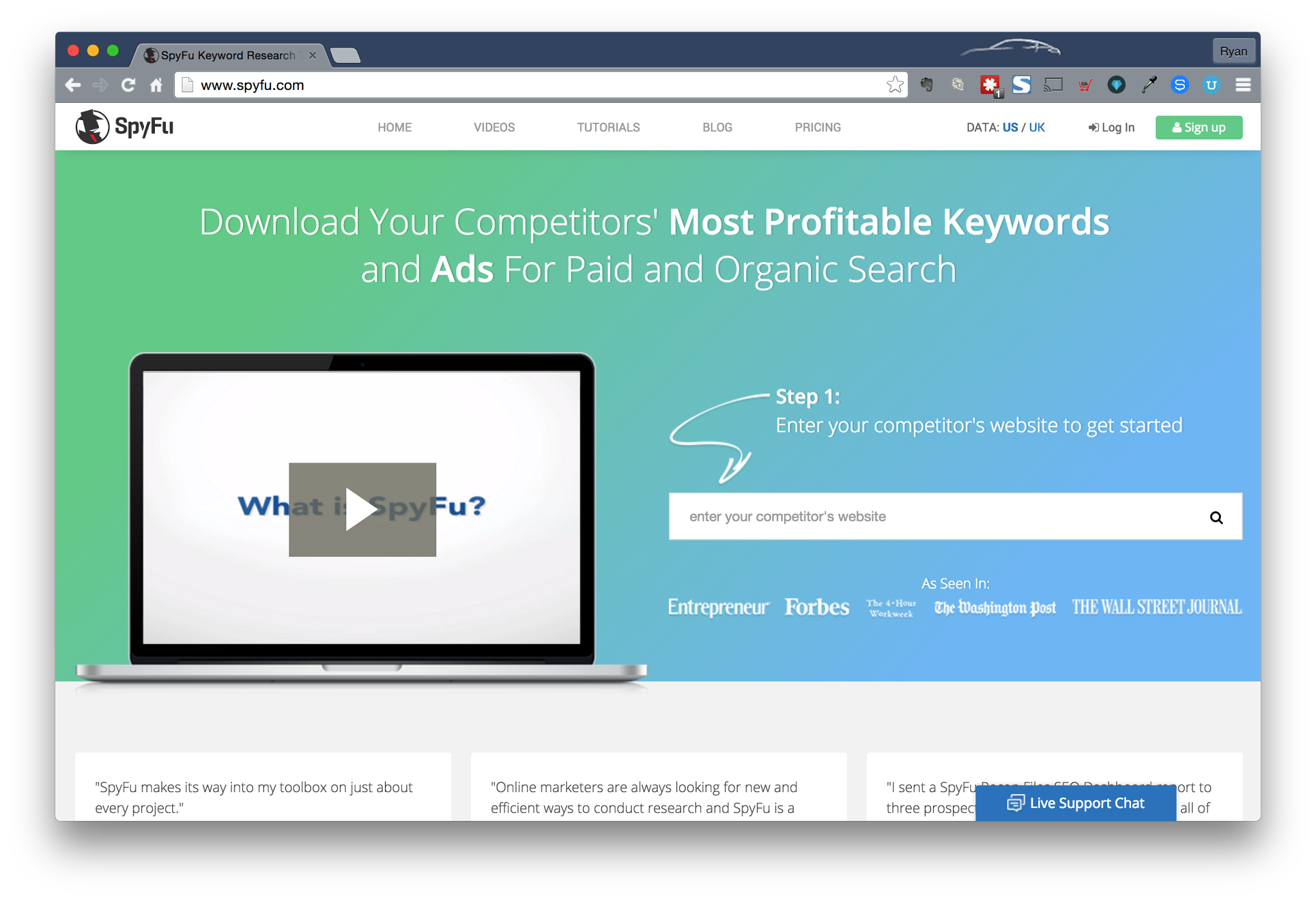 SpyFu is an extremely impressive premium SEO tool that focuses mostly on keyword research and planning for your SEO campaign. SpyFu is a bit more interesting because instead of just pulling up keywords, it has you type in the website of your competitors. You can type in the name of multiple websites, run the software, and find out valuable information.
SpyFu is an extremely impressive premium SEO tool that focuses mostly on keyword research and planning for your SEO campaign. SpyFu is a bit more interesting because instead of just pulling up keywords, it has you type in the website of your competitors. You can type in the name of multiple websites, run the software, and find out valuable information.
Some of the information provided includes:
- The words your competition is on page 1 for
- The search terms your competition just fell off of page 1 for
- Estimated levels of their traffic/organic clicks
- History of paid campaigns
- Sources of inbound backlinks (and numbers of them)
This information can help you figure out exactly what terms to shoot for, what terms they are weak on, and even help reveal sources of positive backlinks for your own campaign. This is a tool that is especially useful for competitive niches where your competition actually knows basic SEO and you want a long-term leg up advantage.
3) SEO Book
Found at: Tools.seobook.com/
SEO Book offers a range of free tools and has long been a great starting spot for individuals who were relatively new to the SEO world and needed some free tools to get started. You will need to create an account with SEO Book before you can access all of their tools, but creating an account is free of charge so you won’t have to spend any cash.
Unlike many of the premium or more advanced tools that focus on one or two specific parts of SEO, it’s good to think of SEO Book as a toolbox. There are tools for finding keywords, creating meta tags, page comparisons, keyword density analysis, and more. It’s a good starting point for all your basic SEO campaign needs. There are even plug-ins available for Internet Explorer, Firefox, and Chrome to allow for easy access.
4) SEMrush Paid Search Ranking & Analysis
Found at: Semrush.com/
SEMrush is a very specific type of tool. This is going to be a handy SEO tool for individuals who use Google AdWords or other search engine Pay Per Click (PPC) methods of advertising. This tool does a very good job of looking at who is ranking for what keywords, and can give a fairly accurate estimate of what the CPC in paid advertising is for those keywords. This can be especially useful in crafting a PPC campaign to beat out a competitor’s success in the organic rankings.
If you don’t mess with PPC advertising this tool isn’t for you, but it’s invaluable for anyone dabbling in this field.
5) SEOmoz’s Open Site Explorer
Found at: Moz.com/researchtools/ose/
Have you ever wondered where your competition is finding the wonderful backlinks that are giving them authority, page rank, and allowing them to rank above your site? If so, this is your tool to even those odds!
Open Site Explorer is offered by SEOmoz and while free trial accesses are available, you have to be a paying member of Moz Pro to get continued access to the full tool. Open Site Explorer focuses specifically on the backlink side of SEO, which is alive and well no matter what some other blogs might (wrongfully) tell you.
This tool can really dig deep and find the source of all backlinks to a website, as well as link back to that source so you can see the actual page it comes from and how that actual link is formatted or given. This tool also gives information on the page authority and overall domain authority of the backlinks, giving much clearer picture of where the ranking juice is really coming from.
This allows you to do two main things:
- See the links your competitors have and thus find new links for your own SEO backlink campaign
- Take a look at the websites linking to you and spot possible bad or negative SEO backlinks to your site you can ask Google to disavow so it stops hurting you
6) Matt Cutts’ Blog
Found at: Mattcutts.com/blog/
This is as close to getting SEO and Google news from the horse’s mouth as you get. While it’s not a tool per se, you would be amazed how often Matt very clearly lays out the changes coming up, what websites can do to make sure they’re okay, and talks about where Google is going in the future with their algorithm changes.
In other words, subscribing to his blog and following any updates that are SEO or Google related will give you a leg up to see what tools will be especially useful coming up, what changes you need to worry about, and give you a head start on staying ahead or fixing problems before they punish your website.
7) Silktide
Found at: Silktide.com
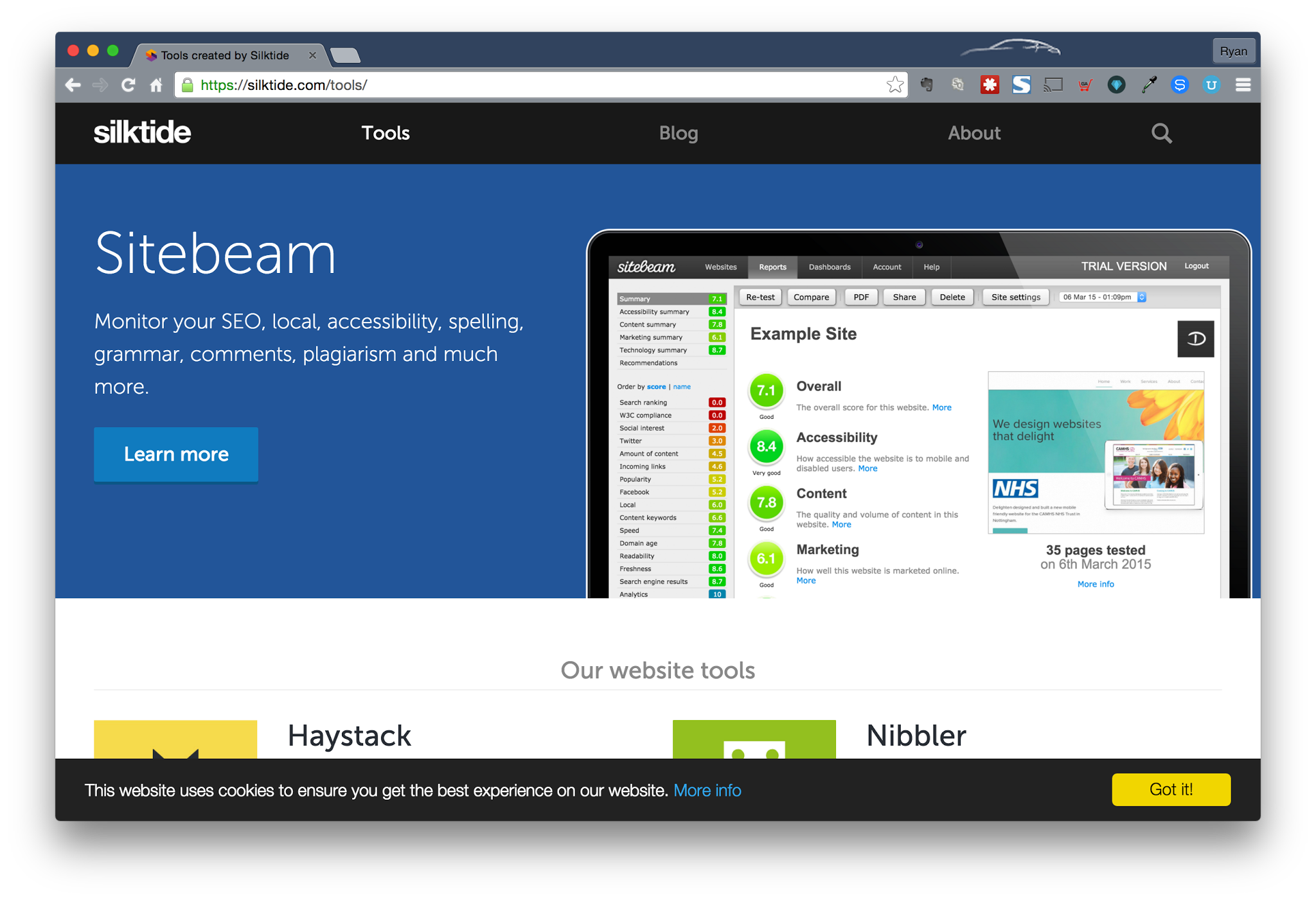 Silktide is above all an analysis tool. This is a paid tool that allows you to put in a website and get a full review on every single piece of the site that can affect SEO from domain age to content, structure, tags, and even the social media footprint that links back to it. The downside is that this is a paid tool, and for many plans each search is going to have a cost to it.
Silktide is above all an analysis tool. This is a paid tool that allows you to put in a website and get a full review on every single piece of the site that can affect SEO from domain age to content, structure, tags, and even the social media footprint that links back to it. The downside is that this is a paid tool, and for many plans each search is going to have a cost to it.
The full detailed report can be downloaded in PDF form after it’s generated, but any website is going to rank on a 10 point scale overall, just as each section will. 0.0 means the website is completely botching that ranking factor while a 10.0 is perfect.
This tool is more on the expensive side, but if you need a quick yet thorough analysis of multiple websites and what is (and isn’t) working then this is definitely the way to go to get that information, save it, and work on each weakness to make it a strength – or see the obvious weaknesses of your competition and strengthen your own website to look better in that category in Google’s eyes than they do.
8) Majestic SEO
Found at: Majestic.com/
Majestic SEO has both a free membership that gives access to a fairly impressive array of tools to spice up your search engine optimization campaign, but the full range of tools (especially comparative tools) are only available with the paid membership. It is worth it for most people to try out the free tools first and see if they really need the premium comparative tools or not.
Aside from the basic SEO tools around links and keywords that many people offer, where Majestic SEO really shines is offering tools that can go a step deeper and show reports on the overall linking campaign of websites, the authority of certain links, and analyze backlinks to see what’s missing or out of balance. These tools can also analyze the domain itself, and bring up domain, site, and backlink history you might not have otherwise found.
Add in one of the most respected overall databases online to interact with these tools and it’s not hard to see why they are seen by many SEO specialists as one of the best paid options out there for premium SEO tools.
9) Raven Tools
Found at: Raventools.com/
 These are paid SEO tools that can be summed up in one word: information. Raven Tools provides information, and lots of it. From links inbound and outbound to pages, domain expiration date, load time, total links, and more, Raven Tools offers an enormous amount of information in a simple no-nonsense display. Even the backlinks are easily broken down to show any .edu, .gov, or other authoritative websites that might be linking.
These are paid SEO tools that can be summed up in one word: information. Raven Tools provides information, and lots of it. From links inbound and outbound to pages, domain expiration date, load time, total links, and more, Raven Tools offers an enormous amount of information in a simple no-nonsense display. Even the backlinks are easily broken down to show any .edu, .gov, or other authoritative websites that might be linking.
There are an enormous number of tools that allow you to really gather the information needed to run a powerful SEO campaign. Raven Tools is a paid service, but they also give you the option of a full 30-day trial that gives you access to absolutely everything, so it’s worth giving a test drive to see if these tools work to meet your needs best.
10) Broken Link Prospector
Found at: Brokenlinkbuilding.com
Broken Link Prospector is a fascinating SEO tool that works at exactly what it mentions: finding broken links. You can search online using keywords for any broken links on any websites that come back based on related keywords or comments. Once you spot these broken links you can contact the owner of those websites offering a piece of excellent (and related) content you have that can fill that gap. This gets you a great backlink and also saves them by helping them remove a broken link (bad for SEO) and then they don’t have to go looking for new content, either.
This is a paid tool with multiple levels of membership, so you’ll have to sign up for an account and take a look at what level serves you and your campaign needs best.
In Conclusion
These 10 tools give any SEO campaign manager an amazing amount of information and options. You may not need all of them, but even one or two of these tools can go a long way toward helping you go from mildly warm results to getting the scorching hot results you truly want.
As the founder and CEO of PR Caffeine, Ryan Berkness specializes in getting businesses found on the Internet using search engine optimization (SEO), pay-per-click marketing (PPC), social media marketing, email marketing, website development and consulting business leaders on proper implementation of digital marketing. To reach, organize and facilitate growth in small businesses, Berkness operates as the vice president of the Small Business Advisory Board and is asked to speak regularly on a variety of digital marketing topics. He is the author of the book “Mastering On-Page Optimization: The Secret Sauce of an SEO System.”


